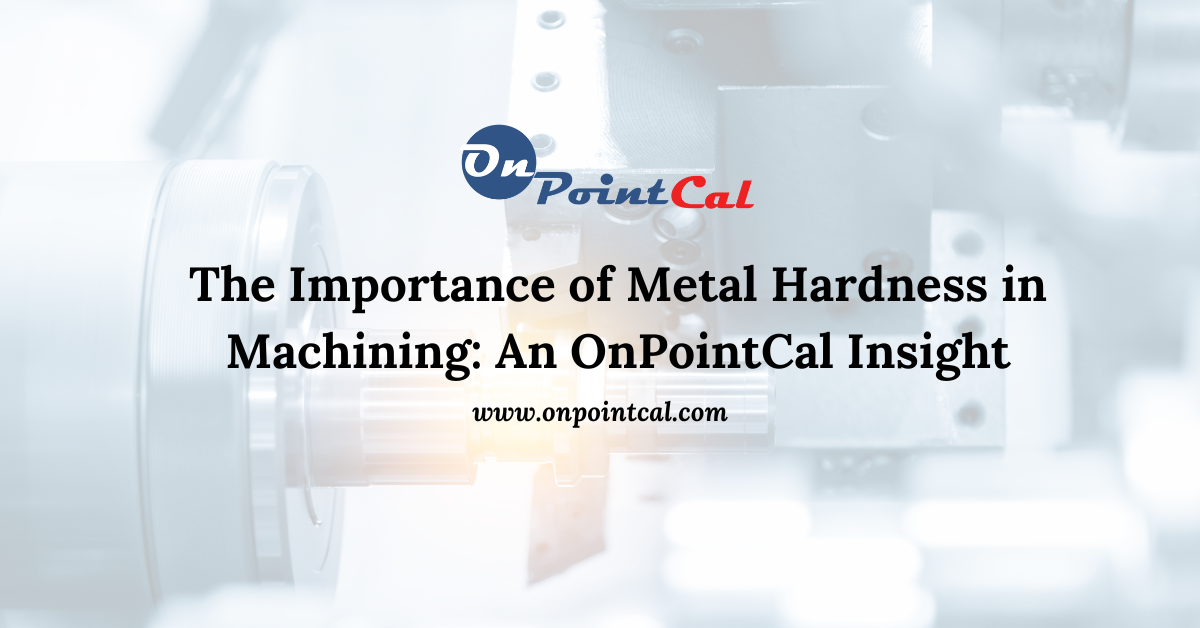Hardness Testing Methodologies, Materials Testing and Calibration, Professional Trends
The Importance of Metal Hardness in Machining: An OnPointCal Insight
Ever wondered what’s guiding the dance of manufacturing? It’s the often overlooked star, metal hardness. Join us at OnPointCal—an ISO 17025 accredited calibration laboratory—to uncover its pivotal role in engineering.

Metal Hardness: A Silent Guardian
Metal hardness gauges a material’s resistance to deformation. This unsung hero guarantees:
- Production consistency.
- Long-lasting final products.
- Resource-savvy machining.
Why Should Engineers be Concerned with Metal Hardness?
- Tool Wear & Lifespan: Hard metals can wear out tools faster. By grasping a metal’s hardness, you can choose appropriate tools, cutting down costs.
- Surface Integrity: Different hardness can yield diverse finishes. Ensure consistent, desirable finishes by knowing your metal’s hardness.
- Efficiency is Key: Recognizing hardness means you can set the perfect machining pace, ensuring quality and efficiency.
- Heat Management: Hard metals generate more heat. By understanding this, you can choose the best cooling methods.
The Significance of Hardness Testing
Navigating the world of manufacturing without understanding metal hardness? It’s a risky venture. Here’s why testing is non-negotiable:
- Upholding Quality: Regular checks ensure products adhere to standards, minimizing recalls.
- Savings: Predictable machining results in resource conservation.
- Fostering Innovation: Grasping the intricacies of metals fuels faster, groundbreaking product development.
OnPointCal: Where Accuracy Meets Assurance
Precision isn’t just an advantage; it’s mandatory. At OnPointCal, we’re dedicated to ensuring your hardness testing is always accurate, every step of the way.


